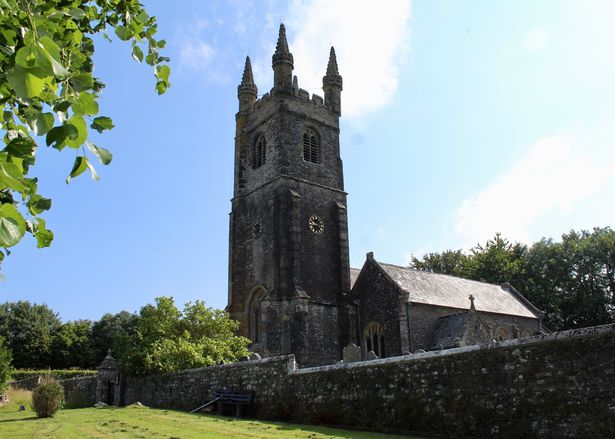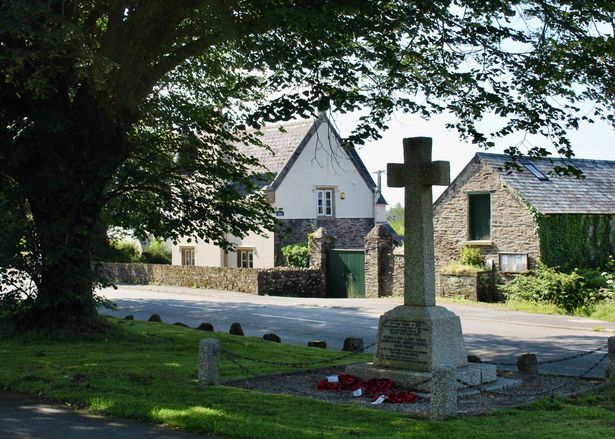https://www.plymouthherald.co.uk/news/history/royal-marine-commandos-who-rub-5663893
Article by Ed Jennings
Two busses and an hour’s travel from Royal Parade is the small village of Bickleigh.
As the bus pulls away you are left with the smell of cut grass and the chatter of birds, well that and a three-hour wait for a bus back – and you better catch the last of for or it’s a nine mile walk home.
The only suspicion that it is not just a hamlet is the occasional jogger wearing a drab-coloured weighted vest.
There is no Post Office, no hotel, antique shop or, the staple of a perfect English village, a pub. The phone box is now a very well used mini library; the church dominates the collection of houses. Father Simon Rundell from St Mary the Virgin Church says it dates back to a sacred site from the 11th century although he maintains the Grade I listed building has more substantial roots in the 14th century.

Services are still run weekly at the church and although the village is small, according to Father Simon it is a local spiritual ‘focus’ for the surrounding villages.
Directly behind the church and bisected by the only road through the village however is a Royal Marine Commando barracks. This location with the popular climbing pitches of Dartmoor’s Dewerstone as a distant back drop is the home to 42 commando RM. Anecdotally, that Dartmoor feature of Dewerstone was the Royal Marine’s finishing point for the run to receive pay before the weekend!
The Barracks was once home to the Commando school before the Commando Training Centre took over in 1971, and also to 41 Cdo, an independent unit of Royal Marine volunteers who were formed up in August of 1950 and attach to the United States Marine Corps to fight in Korea. Now Bickleigh is home to 42 Commando, Royal Marines, one of the fighting components of 3 Commando Brigade. Royal Marines have had a presence in Plymouth since 1664 and with own barracks since 1755, it was not until 1955 they have been Freemen of the city.
Father Simon said that perhaps the proximity of the camp limited any ‘risk to our roof lead’ and that there was a close relationship between the chaplaincy of the barracks.
Local lady Elizabeth Gilmore has been a resident of the village for 10 years after coming down to help with family, who have been here for 40 years. She told me the camp was great and that she used to enjoy the patrols from the base, especially at Christmas when there would be an addition of tinsel to the equipment.
“We don’t know about their [42 CDO] outings,” she said. “You see the coach go by and if I’m in the garden, you wave and wish them good luck with whatever they are doing.”
Mrs Gilmore went on to say that with the exception of traffic, little has changed here. Before there was ‘hardly any traffic and bats would fly around the street lights’. Now there is more noise.
This issue over cars was also echoed by Farther Simon.
“The speed limit and speeding here is a matter of anxiety for people of the village,” he said.
It is perhaps understandable that non-villagers would travel through with the entry to Dartmoor not far away and all the climbing, mountain biking, bird watching and dog walking attractions, freely accessible, that can be found not far beyond the village.
Mrs Gilmore praised the village for its ‘spectacular’ views, especially with ‘all the different weathers’. Although there was a risk to the ‘beautiful’ vistas being overshadowed by the encroaching expansion of Woolwell.

The inhabitants of the village were, in Mrs Gilmore’s opinion, amazing too.
“I have just had an operation and lots and lots of people, even if we didn’t know them terribly well, all stepped up to help,” she beamed.
“Bickleigh really is lovely place.”
